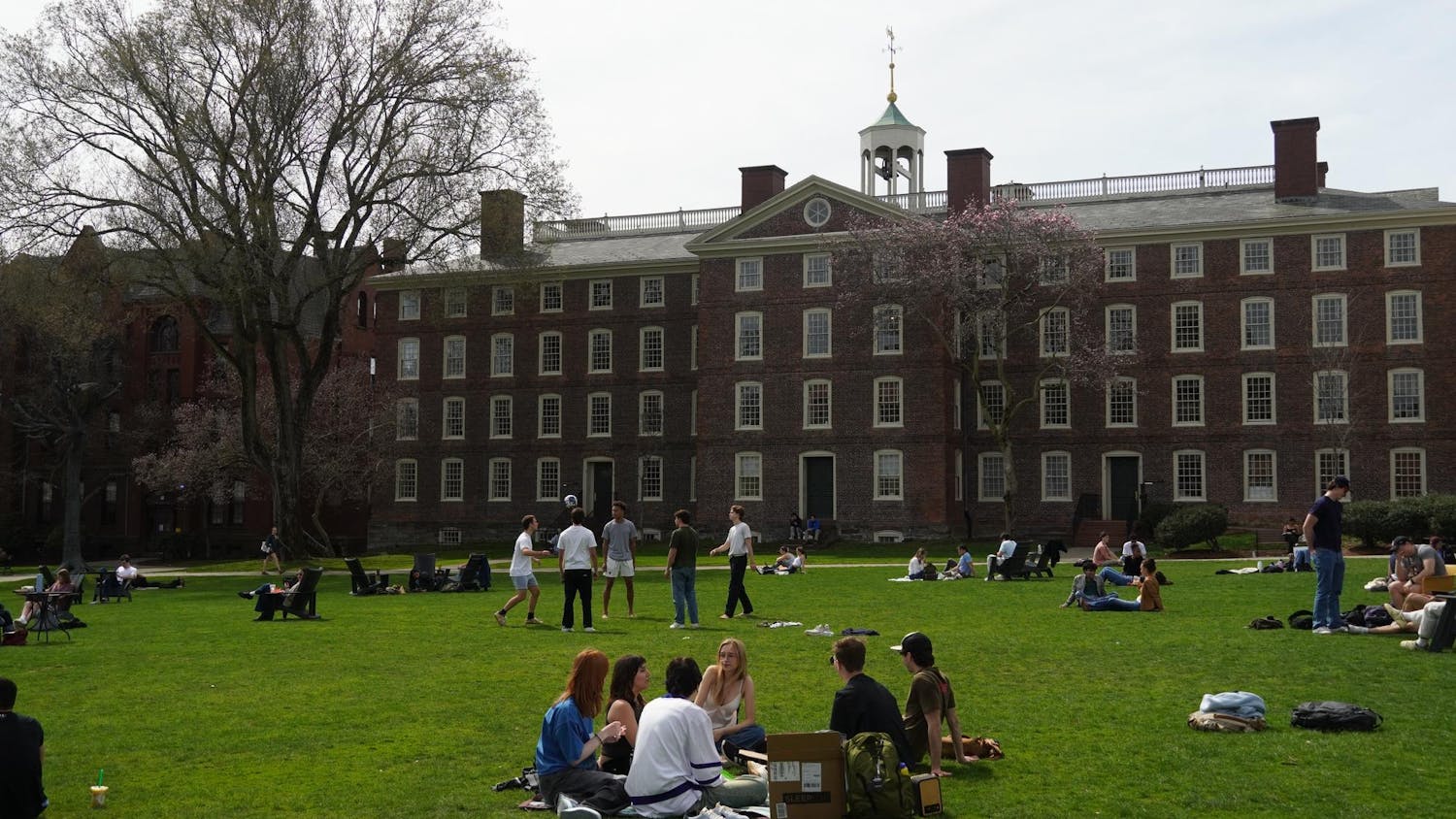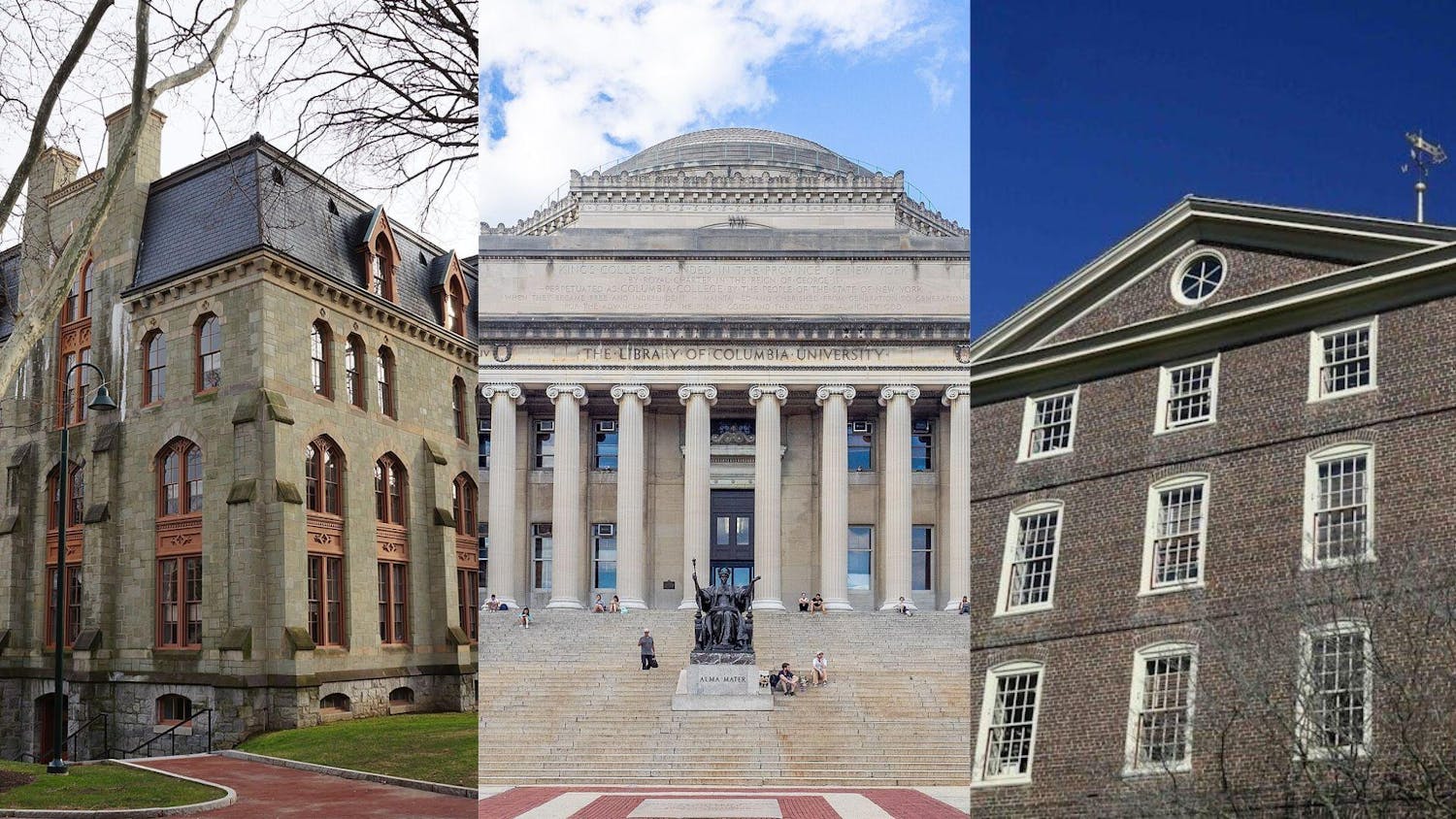In response to survey results indicating a decline in student satisfaction with academic advising, the University is in the process of launching both a three-session workshop called Pathways, and an online summer module for first-year students.
The idea for these developments stemmed from a working group of faculty, staff and undergraduates that began convening weekly in spring 2015 to discuss responses to the survey results and broader improvements that can be made to enhance advising at Brown.
The Pathways program, which began this semester, gives freshmen the framework to plan their college careers and consider life after Brown through the lens of their personal values and standards of success, said Jackson Sales ’19.
Pathways encourages participants to “think about life as an open curriculum” and provides “a framework for thinking about how to make difficult life choices, given the wide array of options and possibilities,” said Dean of the College Maud Mandel.
Sales saw the need for “a structured, community setting” where first-years could discuss how to engage with their passions and interests at Brown after he read articles about analogous advising programs at other universities, he said.
When Sales brought the idea for Pathways to Mandel in spring 2016, he found the advising working group had also been considering a similar program, Mandel said.
Pathways consists of three two-hour sessions that will be facilitated by faculty members, administrators and seniors involved with advising through the Curricular Resource Center, Mandel said.
The first session, which took place this past month, focused on reflecting on the fall semester and identifying students’ personal values, said Peggy Chang, director of the CRC and associate dean of the college. The session included a “value evaluation,” in which participants drew connections between their core values and the ways they spend their time, Sales said.
“(The first session) made me think: Am I really enjoying my first-year experience, or am I just rushing to try and do everything?” said Yvonne Wingard ’20, a Pathways participant.
Choosing a concentration within the open curriculum forms the focus of the second session, Sales said. Faculty facilitators from diverse backgrounds will expose students to different disciplines, he added.
The third meeting acts as a “launching pad,” encouraging participants to think intentionally about a plan for their next three years at Brown, Sales said. The session includes reflecting “on notions of success … because there’s obviously a big diversity (of opinions) in the group of what success means,” he added. The third session is more than “a lot of talk” and “philosophizing,” Sales said, adding that it also asks students to envision daily habits that line up with their values.
Pathways is situated in the spring of freshman year because by their second semester “students are a little more comfortable with Brown,” Sales said. The program introduces concepts that can then be implemented sophomore year, Chang said.
Over 50 first-years are currently participating in Pathways and have been divided into small groups based on availability, Chang said.
“We want to catch the students who want or need such a program, and that’s not everybody,” Mandel said. Pathways targets first-years who either feel “that their first semester of advising was insufficient” or want to be reflective about their education, she added.
Students who are overwhelmed and struggling during their freshman year should know that they “have someone to talk to” and that it’s okay to be uncertain about one’s future, she added.
Pathways may expand to include as many as several hundred first-years, Mandel said. Current participants fill out a survey after each session, generating feedback to improve the program, Chang said.
The refinement of the program is “an iterative process,” Sales said. “I’m hoping to get a really nice final product that’s a fixed part of the Brown advising ecosystem,” he added.
Since Pathways is just beginning, “it’s hard to say how it’s going to go,” Wingard said. But so far, Wingard thinks the program is “a positive thing.”
The online summer workshop for incoming first-year students will introduce them to the advising system and prepare them to engage with the philosophy behind Brown’s open curriculum, Chang said.
“We realized that it might be more effective if we talked to students about (an advising network) before they even launched into the whole advising process,” Mandel said. The goal is to guide students through understanding a relationship not only with an advisor, but also with an open curriculum and a liberal arts environment that values the spirit of free inquiry, Mandel added.
The workshop will consist of four 15-minute modules, each examining a different aspect of the transition to Brown, Mandel said.
Maitrayee Bhattacharyya, senior associate dean of the college for diversity and inclusion, leads the module on the University’s spirit of free inquiry. The module will examine three topics regarding free inquiry: what it means, the conditions that foster it and how students can contribute to it, she said.
The second module will guide students through the “open curriculum in a liberal arts education framework” and teach them to build an advising network, said Besenia Rodriguez, senior associate dean for curriculum. Though around 90 percent of students choose to attend Brown because of the open curriculum, it’s still a radical concept that high schools often fail to prepare students for, she added.
The third module, led by Yolanda Rome, associate dean of the college for first-year and sophomore studies, will help students adjust from high school academics to college classes. The module will include calendar simulations to help students understand time management, which is “a huge chunk of what allows a student to be successful in college,” Rome said. It will also focus on “normalizing the seeking of resources” — such as tutoring, the Writing Center and group problem sessions — as an option for all students, not just those who are struggling, Rome added.
The final module hopes to ground students in their Brown experience so that they can bring their own identities and perspectives to their educational journey, said Carol Cohen, senior associate dean for class advising and for personal and health issues, who leads the group planning this module.
The teams have been working on the workshop all year, incorporating students and faculty into educational skits for the modules and collaborating with the School of Professional Studies. They hope to test the modules on current students in late spring and have it ready by this upcoming August.
“Between the (online workshop) and Pathways, it’s all an experiment,” Chang said. “We’re just going to assess it and see how it goes.”





